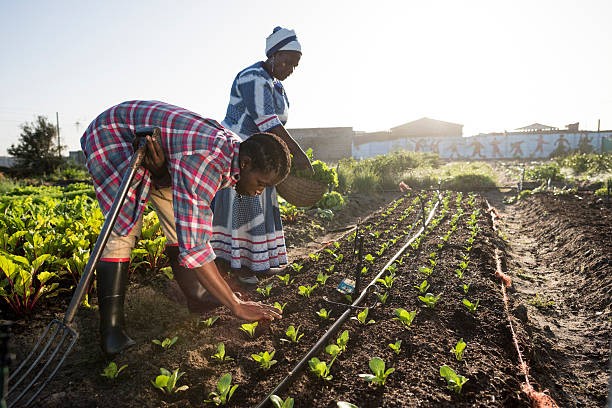Tanzania, a country blessed with rich natural resources and cultural heritage, has seen remarkable contributions from both tourism and agricultural exports to its GDP. According to the data from the Bank of Tanzania, in 2021, Agriculture (agriculture, forestry, and fishing) accounted for 27% of the country’s GDP, Industry and Construction for 31%, and Services for 42%.
While tourism holds much potential, it remains relatively untapped in Tanzania, considering the diverse range of services we can offer in the industry. The tourism sector is among the fastest-growing sectors in the global economy. The World Travel and Tourism Council 2020 report shows that in 2019 the tourism sector contributed 10.3% (US$ 8.9 trillion) of global Gross Domestic Product (GDP) and 330 million jobs, about 10% of all global employment.
Tourism: A Driving Force of Economic Growth
Tanzania Economic Update highlights the vast untapped potential of the tourism sector to drive the country’s development agenda, issues facing tourism in Tanzania, and new challenges brought on by the COVID-19 pandemic that need to be addressed. This offers an opportunity for policy actions for the sector to recover in the near term and become a sustainable engine of private-sector-driven growth, social and economic inclusion, and climate adaptation and mitigation over a long time.
Tourism is a major source of foreign exchange earnings for Tanzania. According to the World Travel and Tourism Council (WTTC), the direct contribution of tourism to Tanzania’s GDP was 4.6% in 2019, with a forecasted rise to 5.8% in 2020. The sector generated TZS 2.3 trillion (approximately USD 1 billion) in revenue in 2018 alone, showcasing its substantial potential to contribute to economic growth.
Tourism directly employed around 558,000 people in Tanzania in 2019, accounting for 3.3% of total employment. Indirect employment and job opportunities in hospitality, transportation, and handicraft industries further contribute to employment generation. More investment in this sector will only benefit the locals as it can bring about more opportunities and further lead to the commoditization of Swahili; hence, teaching options are available to the general public as Tanzania is the only country with a vast population of native Swahili speakers.
Tourism also promotes sustainable development by preserving natural resources, promoting cultural heritage, and supporting local communities. Sustainable tourism initiatives, such as community-based tourism and eco-lodges, benefit local communities economically while conserving the environment.
Agricultural: An Economic Backbone of Tanzania
Though Agriculture has been the backbone of the country, as 65% of the population is engaged in agricultural activities, the majority depend on it for their livelihood, and the efforts devoted to export agriculture are insignificant. Agricultural exports have long contributed significantly to Tanzania’s GDP, leveraging the country’s fertile lands and diverse agricultural products.
In 2019, agriculture accounted for 26.1% of the country’s GDP, according to the National Bureau of Statistics (NBS) of Tanzania. Agriculture remains the primary source of employment in Tanzania, particularly in rural areas providing livelihoods for millions of Tanzanians. Smallholder farmers comprise most agricultural producers and benefit from employment opportunities and income generation.
The agricultural sector’s focus on food crops and staple commodities contributes to domestic food security and self-sufficiency. By promoting sustainable farming practices, supporting smallholder farmers, and ensuring access to markets, agricultural exports help meet the population’s nutritional needs while reducing reliance on food imports.
Comparative Analysis
While tourism contributes a notable portion to Tanzania’s GDP, the agricultural sector holds a higher share. Agriculture’s 26.1% contribution to the GDP (NBS) indicates its significance in generating revenue compared to the direct contribution of tourism, which was 4.6% in 2019. Despite the difference, factors like low investment in promoting the country’s tourism should be considered.
Tanzania has also directed much effort into export agriculture, but many hindering factors have hindered the industry’s booming, like climate change and lack of technology. On the other hand, with tourism, we could maximize our existing cultural heritage and tourist attraction. With more effort in promoting the country’s tourism, Tanzania stands to generate more from tourism as its home to many tourist attractions.
Both sectors offer substantial employment opportunities, but agriculture provides livelihoods to a more significant percentage of the population, particularly in rural areas. Most people engaged in agricultural activities highlight its significance in employment and income generation.
Both sectors have the potential to contribute to sustainable development. Tourism promotes conservation efforts, cultural preservation, and community involvement, while agricultural exports support food security, income generation for smallholder farmers, and sustainable farming practices. A balanced approach that prioritizes sustainability in both sectors is crucial for long-term development.
In conclusion, tourism and agricultural exports are crucial in driving Tanzania’s economic growth, revenue generation, employment opportunities, and sustainable development. While tourism contributes a notable percentage to the GDP and provides employment opportunities in various sectors, the agricultural sector’s higher share in the GDP and its significant role in employment and food security emphasizes its importance.
To harness the full potential of Tanzania’s economy, a balanced approach is required, leveraging the strengths of both sectors while addressing challenges and promoting sustainability. Strategic investments, infrastructure development, capacity building, and sustainable practices in tourism and agriculture will contribute to a diversified and resilient economy, ensuring long-term economic growth, poverty reduction, and improved livelihoods for the Tanzanian people.
Discover more insights here.

